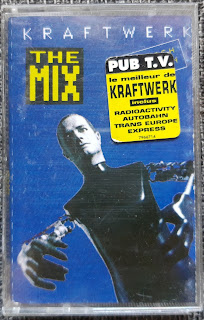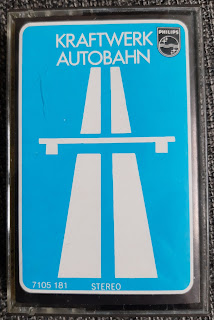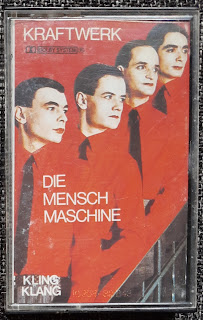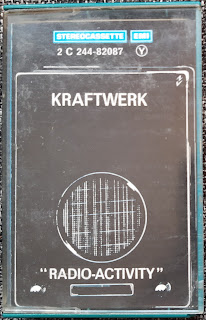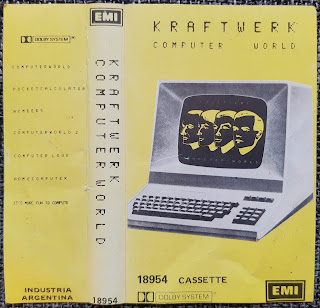
Computer World (1981, Argentina) EMI 18954 Back to Argentina for this one, a somewhat battered copy of Computer World. I said in an earlier post ( here ) that there were all sorts of weird variants of the Argentinian releases, but on closer inspection, the supply seems to have dried up by the time of this release, as I've only ever come across this one Argentinian release for Computer World - for The Man Machine, there are two completely different J-cards designs, and for both that and its predecessor, Trans-Europe Express, there were a lot of different editions, with a multitude of catalogue numbers. Here, though - just the one. Well, as far as I know now. The front cover is lifted from the UK edition, with some local appendages - an extra EMI logo (in addition to the one on the spine), for some reason; the catalogue no. in large print; the word "CASSETTE". All surely correcting a fault of the UK original, even if it is unclear to me exactly which fault. I liked it bett

